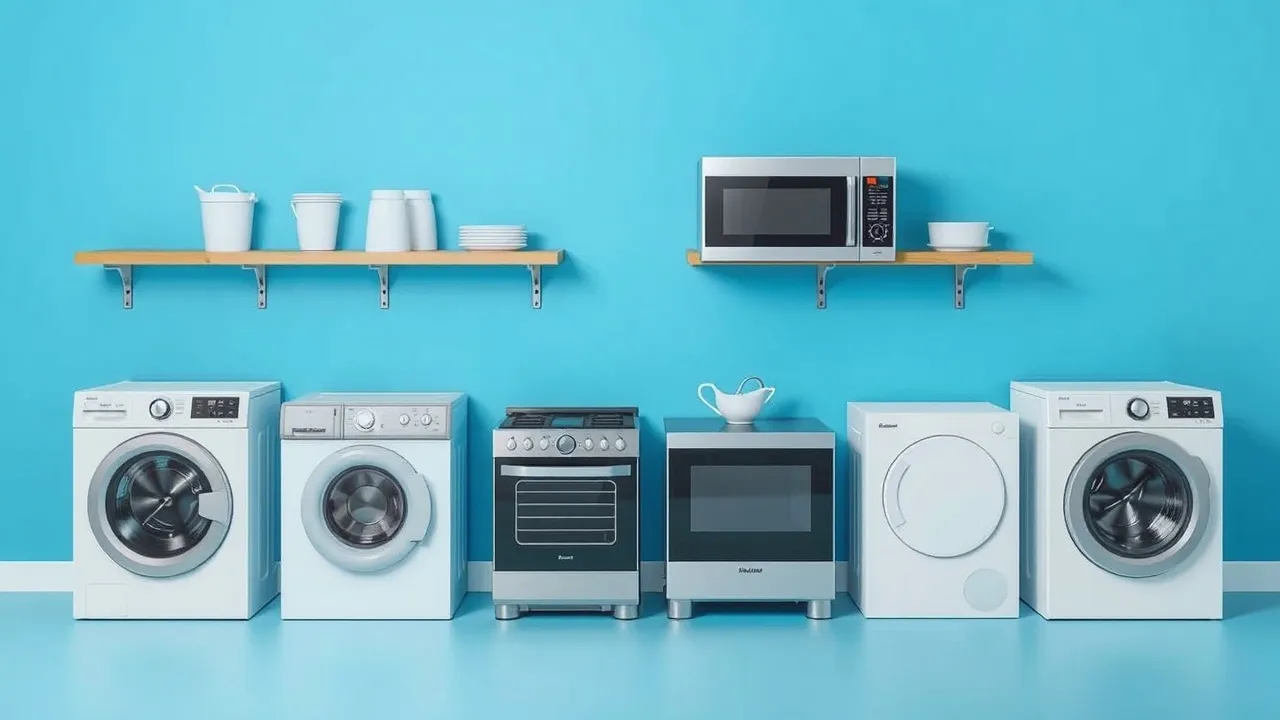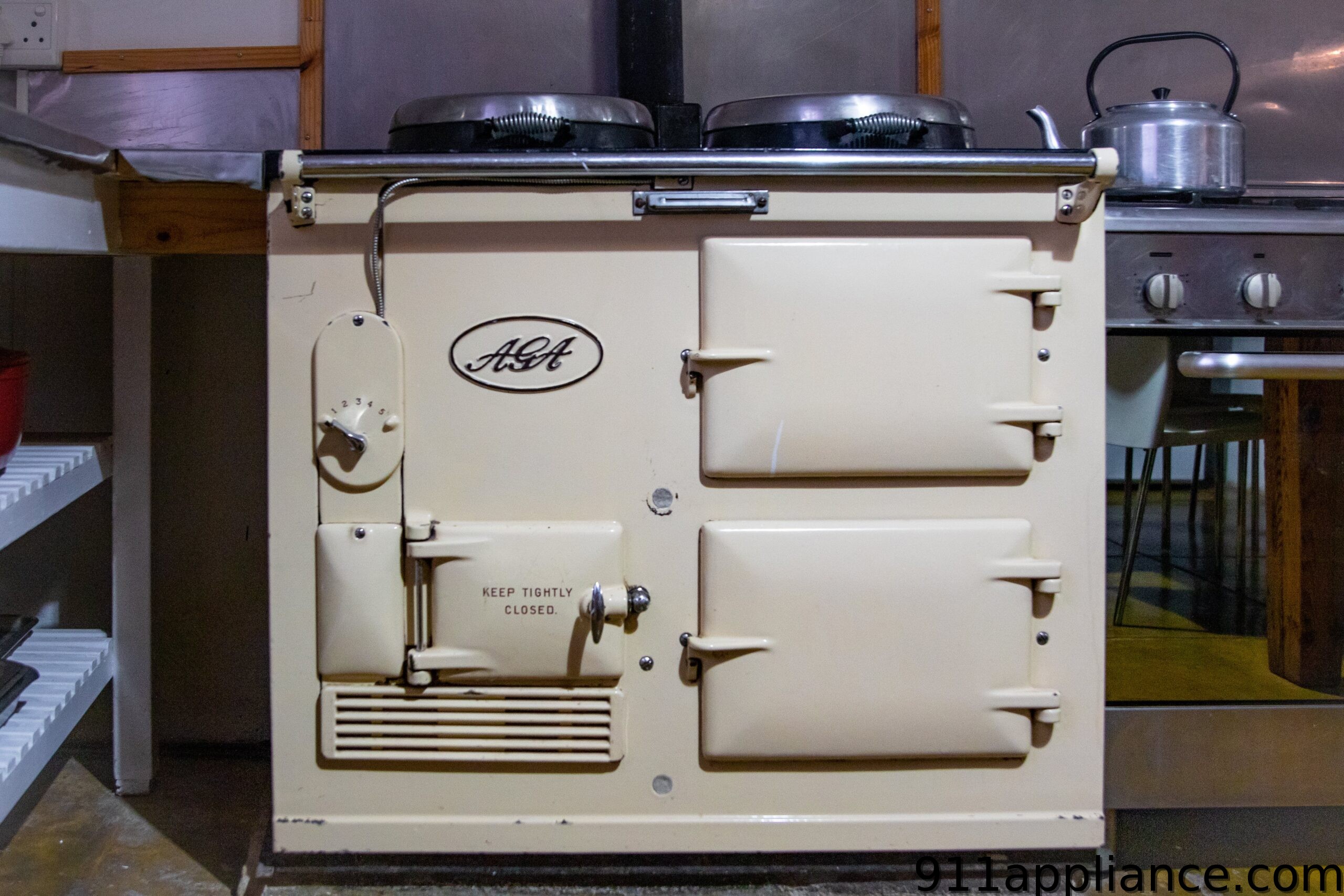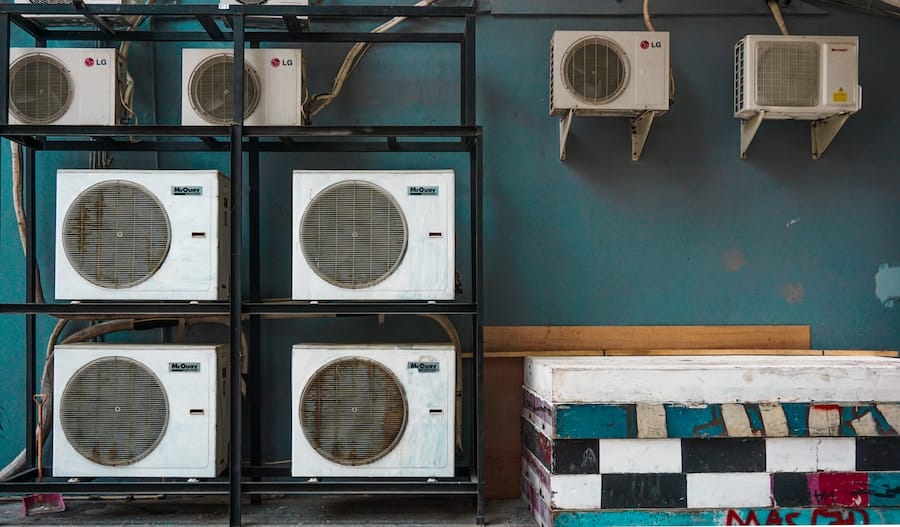Appliances play a crucial role in our daily lives, making tasks easier and more convenient. From refrigerators to dishwashers, these appliances are essential for maintaining a comfortable and functional home. One appliance that often goes unnoticed until it malfunctions is the ice maker and water dispenser. These features are commonly found in refrigerators and provide us with ice and chilled water on demand. However, when these components start to experience issues, it can greatly impact the overall performance of the appliance. In this article, we will explore the importance of appliance performance in the home, specifically focusing on ice makers and water dispensers.
Table of Contents
- Key Takeaways
- Understanding the Impact of Appliance Performance on Your Home
- Common Issues with Ice Makers and Water Dispensers
- Diagnosing Ice Maker and Water Dispenser Problems
- Troubleshooting Tips for Ice Maker and Water Dispenser Issues
- Common Causes of Ice Maker and Water Dispenser Malfunctions
- How to Fix Leaks and Other Water Dispenser Problems
- Addressing Ice Maker Issues: From Slow Ice Production to No Ice at All
- Simple Solutions for Ice Maker and Water Dispenser Problems
- Preventing Future Ice Maker and Water Dispenser Issues
- When to Call in a Professional for Appliance Repair
- How Can I Troubleshoot and Address Issues with My Ice Maker and Water Dispenser?
- FAQs
- What are some common problems with ice makers and water dispensers?
- How can low water pressure affect ice maker and water dispenser performance?
- What should I do if my water filter is clogged?
- What is a water inlet valve and how can it affect ice maker and water dispenser performance?
- What are some signs that my ice maker components may be malfunctioning?
Key Takeaways
- Appliance performance can have a significant impact on your home’s overall efficiency and comfort.
- Common issues with ice makers and water dispensers include leaks, slow production, and no ice at all.
- Diagnosing problems with these appliances requires a basic understanding of their components and operation.
- Troubleshooting tips for ice makers and water dispensers include checking for clogs, adjusting temperature settings, and inspecting water supply lines.
- Common causes of malfunctions include faulty valves, damaged water lines, and worn-out components.
Understanding the Impact of Appliance Performance on Your Home
Appliance performance plays a significant role in our daily lives. When appliances are functioning properly, they make our lives easier and more efficient. For example, a fully functioning refrigerator with a working ice maker and water dispenser allows us to have access to chilled water and ice whenever we need it. This is especially important during hot summer months or when hosting gatherings at home.
On the other hand, when appliances start to malfunction, it can have a negative impact on our daily routines. A malfunctioning ice maker or water dispenser can be frustrating and inconvenient. It can disrupt our ability to have access to cold beverages or make it difficult to entertain guests. Additionally, when appliances are not performing optimally, they may consume more energy, leading to higher energy bills.
Common Issues with Ice Makers and Water Dispensers
Ice makers and water dispensers can experience a range of issues that affect their performance. Some common problems include slow ice production, no ice production at all, leaks, and inconsistent water flow. These issues can be caused by various factors such as clogged filters, faulty valves, or malfunctioning motors.
Slow ice production is a common problem that many people encounter with their ice makers. This can be caused by a variety of factors, including a clogged water filter, low water pressure, or a malfunctioning ice maker motor. When the ice maker is not producing ice at its normal rate, it can be frustrating and inconvenient, especially during hot summer months or when hosting parties.
Another common issue with ice makers and water dispensers is leaks. Leaks can occur due to a faulty water valve, a cracked water line, or a loose connection. Not only can leaks cause damage to the surrounding area, but they can also lead to mold and mildew growth if left unaddressed.
Diagnosing Ice Maker and Water Dispenser Problems
When experiencing issues with your ice maker or water dispenser, it is important to diagnose the problem accurately before attempting any repairs. This will help you determine the appropriate course of action and avoid unnecessary expenses.
To diagnose ice maker and water dispenser problems, start by checking the water supply. Ensure that the water supply valve is fully open and that there are no kinks or blockages in the water line. If the water supply seems fine, move on to checking the ice maker itself. Look for any visible signs of damage or malfunction, such as loose connections or broken parts.
If you are unable to identify the issue visually, it may be helpful to consult the appliance’s user manual or contact the manufacturer for troubleshooting guidance. They may be able to provide specific instructions based on your appliance model.
Troubleshooting Tips for Ice Maker and Water Dispenser Issues
For simple issues with your ice maker or water dispenser, there are several troubleshooting tips you can try before calling in a professional. These tips can help you resolve common problems and get your appliance back up and running.
One common issue with ice makers is slow ice production. If you notice that your ice maker is not producing ice as quickly as it used to, try checking the temperature settings in your freezer. The freezer should be set to a temperature between 0 and 5 degrees Fahrenheit (-18 to -15 degrees Celsius) for optimal ice production. Adjust the temperature if necessary and give the ice maker some time to produce ice.
If your ice maker is not producing any ice at all, check the water supply. Ensure that the water supply valve is fully open and that there are no kinks or blockages in the water line. You can also try resetting the ice maker by turning it off for a few minutes and then turning it back on.
For water dispenser issues, such as inconsistent water flow or no water flow at all, check the water filter. A clogged water filter can restrict water flow and affect the performance of the dispenser. Replace the water filter if it is dirty or clogged.
Common Causes of Ice Maker and Water Dispenser Malfunctions
Ice maker and water dispenser malfunctions can be caused by various factors. Understanding these common causes can help you prevent future issues and maintain optimal appliance performance.
One common cause of ice maker and water dispenser malfunctions is a clogged water filter. Over time, the water filter can become dirty or clogged with debris, affecting water flow and ice production. Regularly replacing the water filter can help prevent this issue.
Another common cause of malfunctions is a faulty water valve. The water valve controls the flow of water into the ice maker and water dispenser. If the valve is faulty, it may not open properly or may not shut off completely, leading to leaks or inconsistent water flow. Replacing a faulty water valve can resolve these issues.
Additionally, low water pressure can also affect the performance of ice makers and water dispensers. If the water pressure is too low, it may not provide enough force to fill the ice maker or dispense water properly. Checking the water pressure in your home and addressing any issues can help prevent these problems.
How to Fix Leaks and Other Water Dispenser Problems
Leaks are a common issue with water dispensers and can be caused by various factors. Fixing leaks and other water dispenser problems requires identifying the source of the leak and taking appropriate action.
To fix a leak, start by turning off the water supply to the dispenser. This will prevent any further water damage. Next, inspect the water line and connections for any signs of damage or loose connections. Tighten any loose connections and replace any damaged parts as necessary.
If the leak is coming from the dispenser itself, it may be due to a faulty water valve or a cracked water line. In this case, it may be necessary to replace the faulty component to resolve the issue.
Preventing future water dispenser problems can be achieved by regularly cleaning and maintaining the dispenser. This includes cleaning the dispenser nozzle, checking for any blockages in the water line, and replacing the water filter regularly.
Addressing Ice Maker Issues: From Slow Ice Production to No Ice at All
Ice maker issues can range from slow ice production to no ice production at all. Addressing these issues requires identifying the underlying cause and taking appropriate action.
If your ice maker is producing ice at a slower rate than usual, start by checking the temperature settings in your freezer. Ensure that the freezer is set to a temperature between 0 and 5 degrees Fahrenheit (-18 to -15 degrees Celsius) for optimal ice production. Adjust the temperature if necessary and give the ice maker some time to produce ice.
If your ice maker is not producing any ice at all, check the water supply. Ensure that the water supply valve is fully open and that there are no kinks or blockages in the water line. You can also try resetting the ice maker by turning it off for a few minutes and then turning it back on.
If these troubleshooting steps do not resolve the issue, it may be necessary to call in a professional for further diagnosis and repair. They will have the expertise and tools to identify and fix more complex issues with your ice maker.
Simple Solutions for Ice Maker and Water Dispenser Problems
For simple ice maker and water dispenser problems, there are several simple solutions you can try before calling in a professional. These solutions can help resolve common issues and prevent future problems.
One simple solution for slow ice production is to clean the ice maker. Over time, mineral deposits can build up on the ice maker components, affecting its performance. Cleaning the ice maker with a mixture of warm water and vinegar can help remove these deposits and improve ice production.
Regularly replacing the water filter is another simple solution for maintaining optimal ice maker and water dispenser performance. The water filter helps remove impurities from the water, ensuring clean and fresh-tasting ice and water. Follow the manufacturer’s recommendations for replacing the water filter to prevent clogs and maintain optimal performance.
Preventing Future Ice Maker and Water Dispenser Issues
Preventing future ice maker and water dispenser issues requires regular maintenance and proper care. By following a few simple steps, you can keep your appliances in good working condition and avoid costly repairs.
Regularly cleaning the ice maker and water dispenser is essential for preventing clogs and maintaining optimal performance. This includes cleaning the ice bin, removing any built-up ice or debris, and wiping down the dispenser nozzle.
In addition to cleaning, regularly inspecting the water line for any signs of damage or leaks can help prevent future issues. Replace any damaged parts or connections as necessary to ensure proper water flow.
Properly maintaining your appliances also includes regularly replacing the water filter. The water filter helps remove impurities from the water, ensuring clean and fresh-tasting ice and water. Follow the manufacturer’s recommendations for replacing the water filter to prevent clogs and maintain optimal performance.
When to Call in a Professional for Appliance Repair
While many ice maker and water dispenser issues can be resolved with simple troubleshooting and maintenance, there are times when it is necessary to call in a professional for appliance repair. It is important to recognize the signs that indicate it’s time to seek professional help.
If you have tried troubleshooting steps and maintenance tips but are still experiencing issues with your ice maker or water dispenser, it may be time to call in a professional. They will have the expertise and tools to diagnose and repair more complex issues.
Additionally, if you are uncomfortable or unsure about performing any repairs yourself, it is best to leave it to the professionals. Attempting repairs without the necessary knowledge and experience can lead to further damage or injury.
When seeking a professional appliance repair service, it is important to find a reputable and reliable company. Ask for recommendations from friends or family, read online reviews, and check for proper licensing and insurance. A reputable repair service will provide quality service and ensure that your appliances are repaired correctly.
Maintaining optimal appliance performance is crucial for a comfortable and functional home. Ice makers and water dispensers are often overlooked until they start experiencing issues. By understanding the impact of appliance performance on your home and learning how to diagnose and troubleshoot ice maker and water dispenser problems, you can keep your appliances in good working condition.
Regular maintenance, such as cleaning and replacing the water filter, can help prevent future issues with ice makers and water dispensers. However, if you are unable to resolve the issue on your own or are uncomfortable performing repairs, it is best to call in a professional appliance repair service.
By taking proper care of your appliances and addressing any issues promptly, you can ensure that your ice maker and water dispenser continue to provide you with chilled water and ice whenever you need it.
How Can I Troubleshoot and Address Issues with My Ice Maker and Water Dispenser?
If you are facing ice maker problems and solutions are needed, start by checking the water supply and ensuring proper connection. Clean the ice maker and water dispenser regularly to prevent any blockages. If the issue persists, consult the user manual or contact a professional for assistance.
FAQs
What are some common problems with ice makers and water dispensers?
Some common problems with ice makers and water dispensers include low water pressure, clogged water filters, faulty water inlet valves, and malfunctioning ice maker components.
How can low water pressure affect ice maker and water dispenser performance?
Low water pressure can cause slow or incomplete ice production, as well as slow or weak water flow from the dispenser. It can also cause the ice maker to make smaller or misshapen ice cubes.
What should I do if my water filter is clogged?
If your water filter is clogged, you should replace it with a new one. Most filters need to be replaced every 6 months to a year, depending on usage.
What is a water inlet valve and how can it affect ice maker and water dispenser performance?
A water inlet valve is a component that controls the flow of water into the refrigerator. If it is faulty, it can cause low water pressure, slow or incomplete ice production, and slow or weak water flow from the dispenser.
What are some signs that my ice maker components may be malfunctioning?
Some signs that your ice maker components may be malfunctioning include no ice production, small or misshapen ice cubes, and loud or unusual noises coming from the ice maker.



